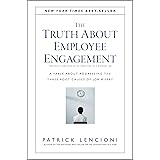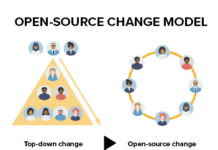New research shows that salary negotiations are on the rise – for both shortlisted candidates and existing employees. So, how should HR professionals respond? Negotiating successfully requires a high-level skillset, from formulating the right questions to knowing when to stop.
When it comes to negotiating salaries, more and more job candidates are driving harder bargains with their employers – for two reasons.
The first is increased living costs. The second is Australia’s low unemployment rate, which, at August 2023, was 3.7 per cent, according to the Australian Bureau of Statistics.
In June 2023, 45 per cent of Australian employers reported that more shortlisted candidates negotiated salary packages than at the same time in 2022, a study by Robert Half has revealed. And this wasn’t just the case for incoming employees – 40 per cent of employers said the same for existing employees.
What’s more, 44 per cent of those negotiating sought more money, while only 22 per cent pursued more perks (34 per cent asked for both).
So, what happens when an organisation wants such a candidate, but can’t afford them? For HR professionals, sharp negotiating skills are crucial. HRM spoke with Nicole Gorton, director, Robert Half recruitment agency, and workplace expert to learn about some useful tips HR can deploy.
How to respond to a candidate who wants to negotiate
There are two factors that are key to starting a successful salary negotiation: first, establish a calm atmosphere, and second, demonstrate a commitment to understanding the other party’s motivations.
The former requires self-control, says Gorton.
“Throughout, you want to remain professional, remove emotions and make sure the process doesn’t become combative,” she says. “It should be a positive conversation.”
The latter requires asking plenty of questions.
“It’s important to talk to the person in their language. Two things usually play out: where did they get [their asking] figure from? And what is important to them in their next career move?”
For example, did they previously work for a company that didn’t offer them a salary increase for a long period of time or perhaps they are saving for a significant purchase, such as a home or car.
Taking the time to learn the candidate or employee’s motivating factors can provide the basis for structuring the rest of the negotiation – and hopefully finding a solution.
How to talk about money
Questions about the candidate’s salary goal should dig into their reasoning, says Gorton.
“You might ask questions, such as, ‘Where did you get this figure from? What was your thought process to reach it? What are you expecting in terms of salary uplift?’” she says.
In responding, the hirer should draw on thorough research of the market, including discussions with expert recruiters and consultation of salary guides. (Robert Half publishes one bi-annually.)
This is particularly important at the moment, as the hiring economy is constantly shifting – and has been especially volatile during the past three years.
“Education and re-education are vital,” says Gorton. “For example, last year was a complete anomaly – candidates had salary expectations beyond the norm, so organisations had to cater to that. But now, salaries are starting to normalise.”
Armed with up-to-date knowledge, the hirer can decline a candidate’s unrealistic expectations – all the while backed up by hard evidence.
Further, to put themselves in the best position, the hirer should make an offer first – rather than asking the candidate for theirs, says Gorton. This could extend to including a ballpark figure in the job advertisement, which Gorton usually recommends because it results in more, and better targeted, applicants.
More than money
A salary negotiation is about more than money.
If the candidate’s asking figure is beyond budget, the organisation might, on one hand, negotiate a lower salary by offering extra benefits.
It is essential, though, to tailor these benefits to the candidate. This is where questioning them about what’s important – besides money – comes in.
Gorton suggests asking questions like, “Where are you at in your career? What’s your life stage? What do you expect the next twelve months to look like? If we don’t have the budget to hire you at the salary you want, what’s the next best thing we could offer?”
In addition to the predictable benefits, such as hybrid working, organisations should think left-of-field. Other bonuses to have grown in demand include programs for financial health and mental health; special leave for fertility treatment, volunteering and pet care; opportunities to work and study abroad; and genuine flexibility, such as bespoke start and finish times.
Gorton says, benefits should cater to life stages.
“Someone at the embryonic stage of their career might be most interested in professional development, while someone at another life stage might be looking for extra parental leave, or health and wellness support, or a retirement plan.”
On the other hand, the organisation might decide the candidate is worth the extra investment – particularly if exceptional skills and experience are on offer.
“They might have leadership competencies, problem solving skills, excellent communication or have demonstrated innovation in previous roles,” says Gorton.
“The company might decide, ‘This candidate is outstanding, and we’ll give them an extra 5-10 per cent based on the fact that they’re the best person we’ve seen for the role.’”
Read HRM’s case study about the organisation that lets its employees set their own salaries.
Keeping an eye on the big picture
While negotiating should be focused on the individual, the hirer should not lose sight of its potential impact on the rest of the organisation.
“The wrong decision can sometimes have catastrophic consequences in the long term,” says Gorton.
“We saw that play out last year. Companies were overpaying to buy skills into their organisations, not realising that they actually weren’t getting the skillset they were hoping for.
“When you’re overpaying to hire on potential, you need time to upskill the person – and, if you can’t give them that time, the new employee may take longer to get up to speed. The organisation might fall out of love them, while they might become disengaged because they can’t perform the role expected of them.”
Striking the right balance
Ultimately, getting a negotiation right is about striking a balance.
“The demand for top talent continues to outstrip supply,” says Gorton.
“So, to secure and retain talent, organisations are having to strike a balance between what they want and what the candidate wants. A negotiation is about determining, ‘Where can we meet on this?’”
Discussing sensitive topics in the workplace can be tricky. AHRI’s short course will arm you with the tools to effectively prepare, plan and conduct a difficult conversation and achieve the best possible outcomes while maintaining harmonious working relationships.
The post How should HR approach a salary negotiation with a prospective hire? appeared first on HRM online.
Now retrieving an image set.
The World Is Your Office: How Work from Anywhere Boosts Talent, Productivity, and Innovation
(as of April 26, 2025 03:09 GMT +00:00 - More infoProduct prices and availability are accurate as of the date/time indicated and are subject to change. Any price and availability information displayed on [relevant Amazon Site(s), as applicable] at the time of purchase will apply to the purchase of this product.)Now retrieving an image set.
People Powered by AI: A Playbook for HR Leaders Ready to Shape the New World of Work
(as of April 26, 2025 03:09 GMT +00:00 - More infoProduct prices and availability are accurate as of the date/time indicated and are subject to change. Any price and availability information displayed on [relevant Amazon Site(s), as applicable] at the time of purchase will apply to the purchase of this product.)Now retrieving an image set.
Dummies Guide to Starting Your Own Business: Your Definitive Guide to Launching a Successful Business Quickly and Efficiently — Gain an Edge
(as of April 26, 2025 03:09 GMT +00:00 - More infoProduct prices and availability are accurate as of the date/time indicated and are subject to change. Any price and availability information displayed on [relevant Amazon Site(s), as applicable] at the time of purchase will apply to the purchase of this product.)Now retrieving an image set.
The Unspoken Truths for Career Success: Navigating Pay, Promotions, and Power at Work
(as of April 26, 2025 03:09 GMT +00:00 - More infoProduct prices and availability are accurate as of the date/time indicated and are subject to change. Any price and availability information displayed on [relevant Amazon Site(s), as applicable] at the time of purchase will apply to the purchase of this product.)Now retrieving an image set.
Leadership and Self-Deception (Fourth Edition): The Secret to Transforming Relationships and Unleashing Results
(as of April 26, 2025 03:09 GMT +00:00 - More infoProduct prices and availability are accurate as of the date/time indicated and are subject to change. Any price and availability information displayed on [relevant Amazon Site(s), as applicable] at the time of purchase will apply to the purchase of this product.)Now retrieving an image set.
The Ideal Team Player: How to Recognize and Cultivate The Three Essential Virtues (J-B Lencioni Series)
(as of April 26, 2025 03:09 GMT +00:00 - More infoProduct prices and availability are accurate as of the date/time indicated and are subject to change. Any price and availability information displayed on [relevant Amazon Site(s), as applicable] at the time of purchase will apply to the purchase of this product.)Now retrieving an image set.
The Importance of Words in Communication and Ways to Persuade the Opponent Using Words
(as of April 26, 2025 03:09 GMT +00:00 - More infoProduct prices and availability are accurate as of the date/time indicated and are subject to change. Any price and availability information displayed on [relevant Amazon Site(s), as applicable] at the time of purchase will apply to the purchase of this product.)Now retrieving an image set.
Recruiting in the War for Talent: A Field Guide for the AI Era
(as of April 26, 2025 03:09 GMT +00:00 - More infoProduct prices and availability are accurate as of the date/time indicated and are subject to change. Any price and availability information displayed on [relevant Amazon Site(s), as applicable] at the time of purchase will apply to the purchase of this product.)Now retrieving an image set.
The Truth About Employee Engagement: A Fable About Addressing the Three Root Causes of Job Misery
(as of April 26, 2025 03:09 GMT +00:00 - More infoProduct prices and availability are accurate as of the date/time indicated and are subject to change. Any price and availability information displayed on [relevant Amazon Site(s), as applicable] at the time of purchase will apply to the purchase of this product.)Now retrieving an image set.


























